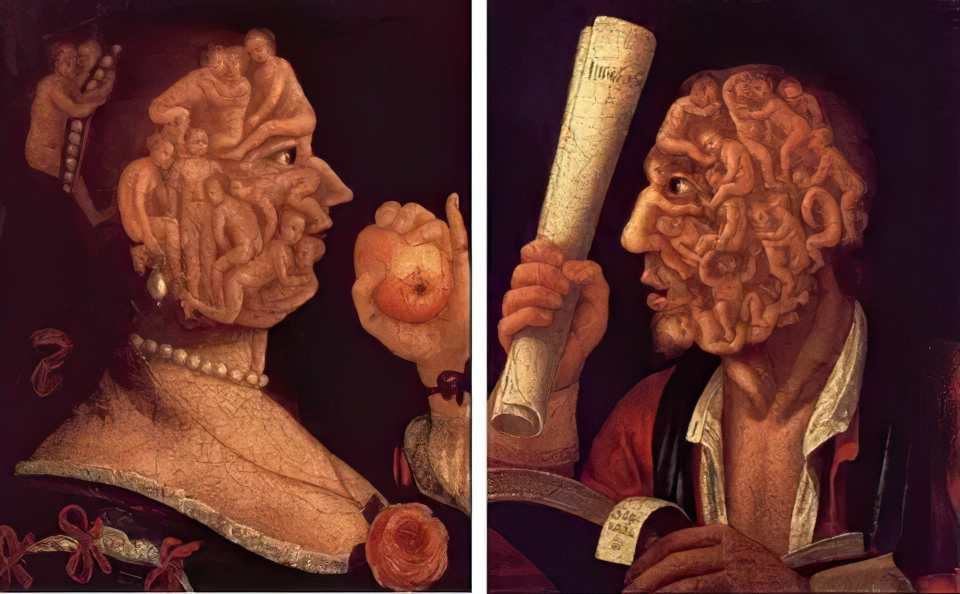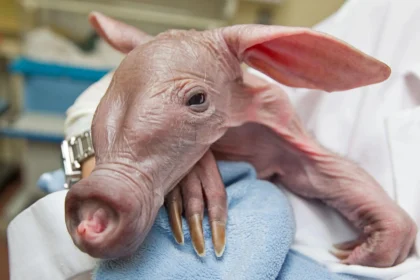Fortune Cookies Are a Traditional Chinese Custom: Unveiling the Mysteries of This Questionable Tradition
- Table of Contents
- 1. The Deceptive Delicacy: Uncovering the Pseudo-Chinese Origins of Fortune Cookies
- 2. A Convenient Lie: Fortune Cookies – The Americanized Take on Chinese Tradition
- 3. Chinese Culture Distorted: The Startling Truth Behind Fortune Cookies
- 4. Cultural Appropriation 101: Fortune Cookies and Their Misleading Connection to Chinese Customs
- Prepare yourself for a deep dive into cultural ignorance as we unravel the baffling association between fortune cookies and Chinese customs. Brace yourself, because you’re about to discover just how misguided and clueless some people can be when it comes to appropriating another culture. First things first, let’s debunk this laughable myth that fortune cookies are a traditional Chinese delicacy. Repeat after me: fortune cookies are NOT Chinese. In fact, they’re about as Chinese as a deep-dish pizza is Mexican. These crispy, sugary delights originated right here in the good old United States, thanks to the ingenuity of Japanese immigrants in the early 1900s. But hey, who cares about facts when you can perpetuate stereotypes and misrepresent an entire culture for your own amusement, right? Just ponder for a moment the audacity it takes to associate fortune cookies with Chinese customs. It’s like associating cows with hula-dancing. Let’s be clear: fortune cookies have absolutely no relevance to Chinese traditions or cuisine. The notion that every Chinese restaurant should conclude a meal with a suspiciously folded piece of paper containing a dubious prophecy is as ignorant as it is laughable. So next time you dig into that crunchy cookie and find a “fortune,” remember that it’s just a gimmick dreamed up to sweeten the American dining experience, not an age-old tradition passed down through generations. It’s time to put an end to this cultural mockery, one cookie crumb at a time. Let’s honor and respect each other’s traditions instead of reducing them to cheap stereotypes. So the next time you’re tempted to profess your love for Chinese culture by devouring a fortune cookie, pause and ponder: Is this really a celebration of someone else’s heritage, or am I just indulging in a tasteless snack that perpetuates ignorance and appropriation? The choice is yours. Future Outlook
Welcome to the captivating realm of fortune cookies, the puzzling dessert that has perplexed culinary experts and intrigued fortune seekers for decades. Often regarded as an integral part of Chinese cuisine, these curious treats have found their way onto plates across the globe, unleashing a flurry of delightful anticipation and witty predictions. However, before we delve into the enigmatic allure of fortune cookies, it’s crucial to address the elephant in the room: contrary to popular belief, they are not exactly authentic Chinese creations. Brace yourself, dear reader, as we embark on an expositional journey to disentangle the twisted historical origins and modern global adoption of these fanciful fortune-bearers.
Table of Contents
- 1. The Deceptive Delicacy: Uncovering the Pseudo-Chinese Origins of Fortune Cookies
- 2. A Convenient Lie: Fortune Cookies – The Americanized Take on Chinese Tradition
- 3. Chinese Culture Distorted: The Startling Truth Behind Fortune Cookies
- 4. Cultural Appropriation 101: Fortune Cookies and Their Misleading Connection to Chinese Customs
- Q&A
- Concluding Remarks

1. The Deceptive Delicacy: Uncovering the Pseudo-Chinese Origins of Fortune Cookies
Ah, fortune cookies, those oh-so-Chinese treats that have mystified and delighted Western palates for decades. Or should I say, pseudo-Chinese treats? Brace yourselves, because I am about to expose the awe-inspiring truth behind these deceitful delicacies.
Contrary to popular belief, fortune cookies did not originate from the mystical land of the dragons and emperors. No, no, my esteemed readers, these sugary impostors actually hail from the Land of the Free and the Home of the Brave. That’s right, dear friends, the United States of America.
- Fortune cookies are nothing but a confused amalgamation of American invention and a vague notion of Chinese culture, drenched in saccharine sweetness.
- Picture this: a Chinese immigrant arrives in the US, brimming with authentic culinary creations passed down through the generations. Yet somehow, in the melting pot of cultural expression, they morph into something completely unrecognizable.
- Imagine trying to savor an exquisite Peking duck, only to have a tasteless, crispy biscuit thrust upon you, masquerading as an ancient Chinese tradition.
To add insult to injury, these faux-Chinese treats are often graced with laughably inaccurate “fortunes” that range from the predictably banal to the downright absurd. Can you say cultural appropriation, anyone?
- Oh, how lucky we are to find inspiring quotes like “You will find success in your future endeavors” and “Happiness is the key to a satisfied life.” Truly groundbreaking advice for all, I’m sure.
- And let’s not forget those hilariously confounding fortunes that leave us scratching our heads, such as “Beware of cookies bearing gifts” or “Your dog will find a new job opportunity.” Absolutely riveting, I must say.
So, dear readers, the next time you crack open a fortune cookie and prepare to receive the false wisdom of a distant land, remember that its origins lie not in the cultural heritage of China, but in the deceptive kitchens of the Western world. And with that newfound knowledge, feel free to savor the pseudo-exotic sweetness, just don’t expect any true enlightenment to come from within.

2. A Convenient Lie: Fortune Cookies – The Americanized Take on Chinese Tradition
Fortune cookies – those supposedly “traditional” treats that you receive at the end of a meal in a Chinese restaurant. It’s amazing how something so laughable has managed to perpetuate itself as an authentic Chinese tradition, when in reality, it couldn’t be further from the truth. These deceiving little snacks are nothing more than an Americanized gimmick, masquerading as a link to Chinese culture. Allow me to enlighten you about the convenient lie that is the fortune cookie.
First of all, let’s dispel the myth that fortune cookies originated from ancient Chinese customs. In fact, they were invented by some opportunistic genius in early 20th century California. Yep, that’s right folks, the land of Hollywood and unoriginal ideas strikes again! These so-called ”cookies” have absolutely no historical or cultural significance in China. It’s almost comical to think that people actually entertain the notion that opening a stale, tasteless piece of cardboard could provide genuine insight into their futures.
- Did you know that fortune cookies are rarely consumed in China? Yep, even the Chinese themselves don’t buy into this absurd tradition.
- Furthermore, the practice of inserting paper fortunes inside cookies? Nope, not a thing in China. That’s just another brilliant American invention, right up there with deep-fried Twinkies and reality TV shows.
- And the fortunes themselves? Let’s just say they’re about as accurate as a politician’s promises during election season. Generic, vague, and often downright useless, these little slips of paper offer no genuine guidance or wisdom.
So next time you crack open one of these deceitful little nuggets, just remember that you’re indulging in a convenient lie. Fortune cookies are the epitome of cultural appropriation and a prime example of how distortions and stereotypes can be perpetuated for profit. But hey, who needs authenticity when you can have a sugar-coated, mass-produced imitation of it?

3. Chinese Culture Distorted: The Startling Truth Behind Fortune Cookies
Prepare to have your mind blown as we delve into the devious world of fortune cookies and expose the shocking truth behind this so-called “Chinese” tradition. Brace yourself, as we strip away the facade of Chinese culture and reveal the insidious origins of these insipid treats.
Contrary to popular belief, fortune cookies are not a beloved Chinese tradition. In fact, they are an American invention concocted to exploit the exotic mystique of Chinese culture further. These cunningly crafted confections have as much to do with China as cheeseburgers have to do with fine dining. Brace yourselves, dear readers, as we shatter the illusion and expose the dark secrets hidden within each crumbly, tasteless cookie.
- American Take on Chinese Culture: Fortune cookies are a prime example of cultural appropriation at its finest. They portray a distorted version of Chinese culture that merely feeds into oblivious stereotypes. Talk about disrespect!
- Manufactured Misery: Believe it or not, fortune cookies were born out of a sinister desire to manipulate people’s emotions. Imaginative fortunes that range from painfully vague to downright depressing aim to toy with our fragile psyche. How considerate!
- Colonial Creativity: It’s no secret that Americans have a knack for taking things from other cultures and making them worse. Fortune cookies are the perfect embodiment of this arrogant approach - taking something humble and delicious like dim sum and transforming it into a tasteless disappointment.
So the next time you crack open a fortune cookie, remember the hollowness lurking beneath its deceivingly cheerful facade. Don’t let yourself be fooled by these impostors, for they hold no true connection to the rich tapestry of Chinese culture. Proceed with caution, and may you find enlightenment elsewhere!

4. Cultural Appropriation 101: Fortune Cookies and Their Misleading Connection to Chinese Customs
Future Outlook
In conclusion, it is clear that fortune cookies are indeed a traditional Chinese custom. While some may have assumed these delightful treats to originate from the depths of China’s ancient history, the reality is that they were, in fact, invented in the United States. Nevertheless, this should not come as a surprise, as we have come to expect such misconceptions regarding traditional customs from those who are not well-versed in the intricate complexities of Chinese culture. It is evident that fortune cookies have managed to captivate the Western world, appealing to their simplistic and elementary understanding of Chinese traditions. So, the next time you indulge in a fortune cookie, remember to take its so-called “fortune” with a grain of salt, for these sugary delights are far from being an authentic reflection of Chinese customs.















